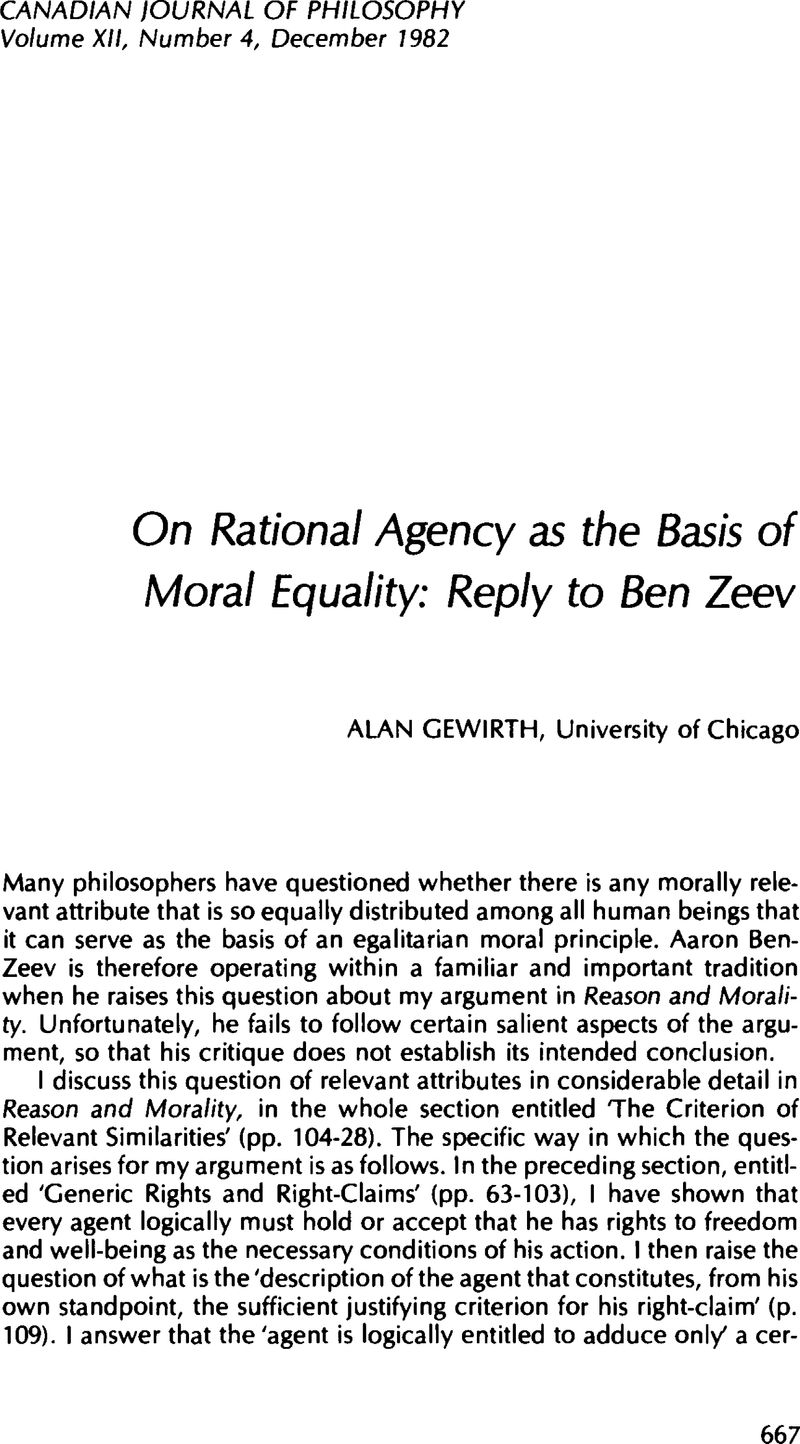No CrossRef data available.
Published online by Cambridge University Press: 01 January 2020

1 Ben Zeev writes: ‘Both the terms “knowledge” and “relevant circumstances” admit degrees and do not have natural and definite borderlines.’ He overlooks that I use the terms in question only in the context of the particular circumstances of particular actions. The agent, insofar as he acts voluntarily, knows ‘who he is, what he is doing, what or whom he is acting on …’ (Aristotle, Nicomachean Ethics III.1. 1111 a2ff.).
2 Vinit Haksar, commenting on an earlier version of my position, objects that ‘the having of purposes’ is insufficient to ground an egalitarian moral principle; in addition, one needs William James's doctrine that ‘human beings form or have ideals of life which they carry out with zest’ (Equality, Liberty, and Perfectionism [Oxford: Clarendon Press 1979] 67). In addition to the difficulty, mentioned by Haksar, that ‘some human beings carry out their lifeplans with greater zest than others’ (p. 68). Haksar fails to note that my full statement refers to agents as having 'purposes they want to fulfil; and that this wanting supplies the conative element whose need he posits. Differences in the degrees of such wanting are irrelevant to the generic features on which my argument focuses.